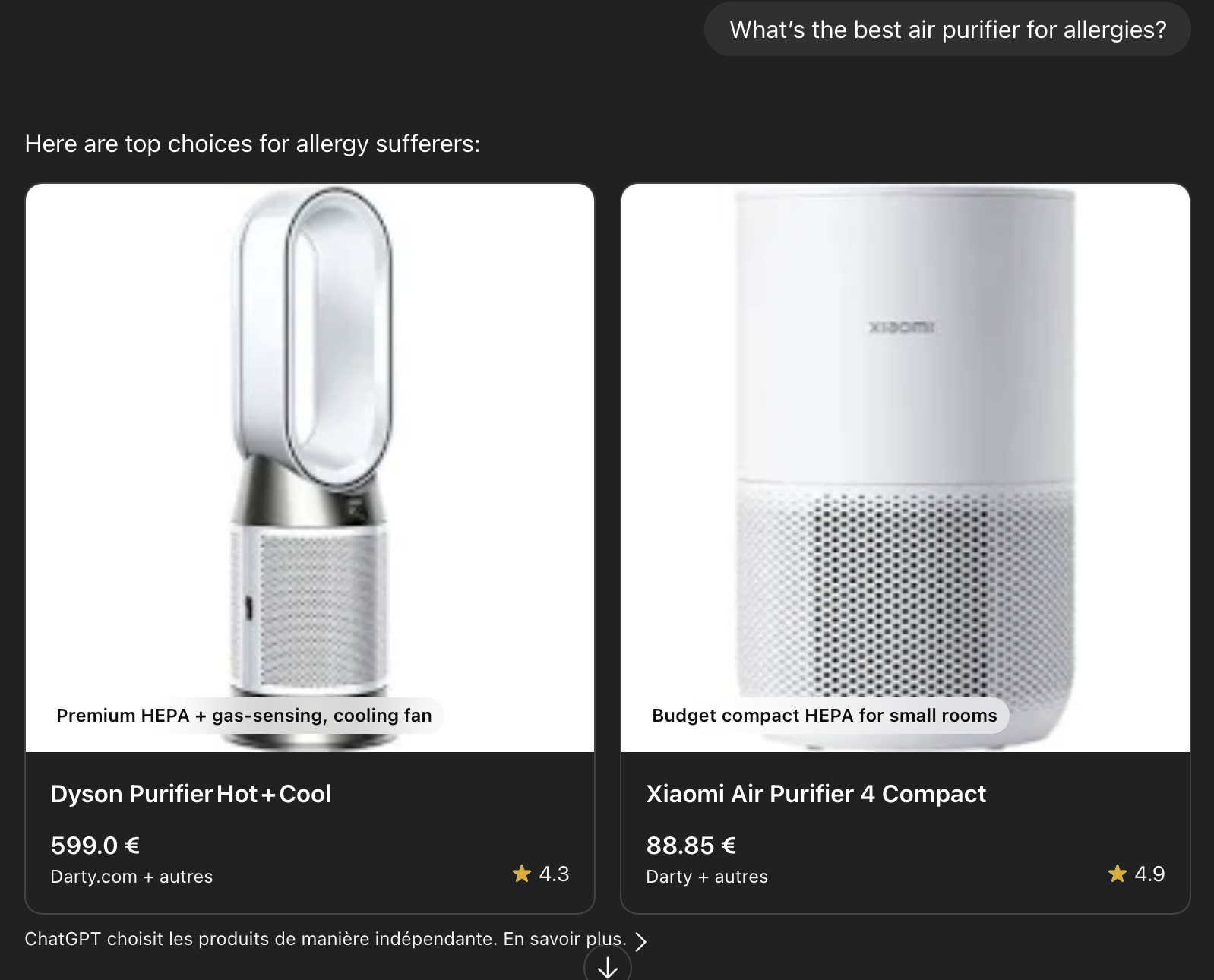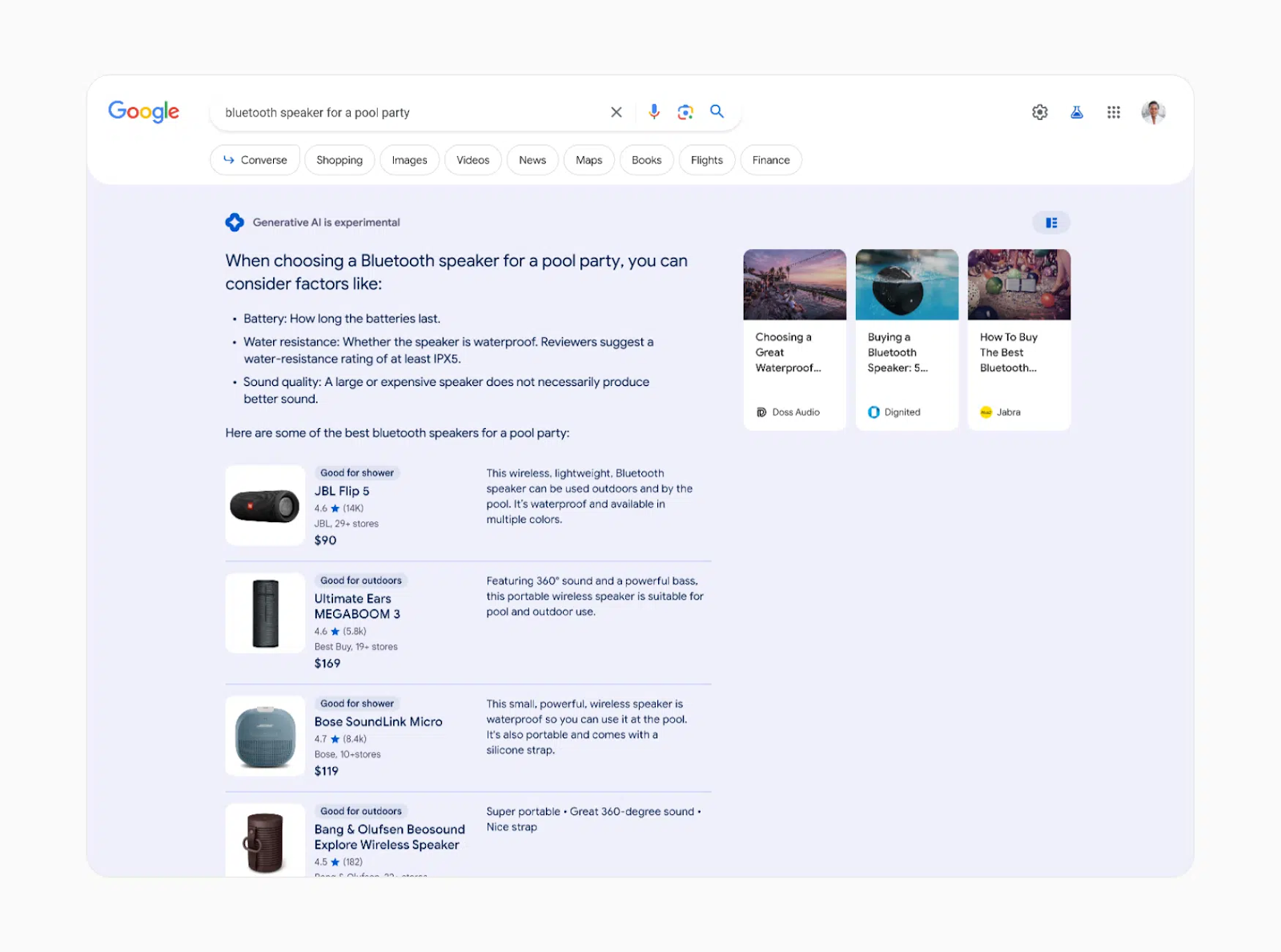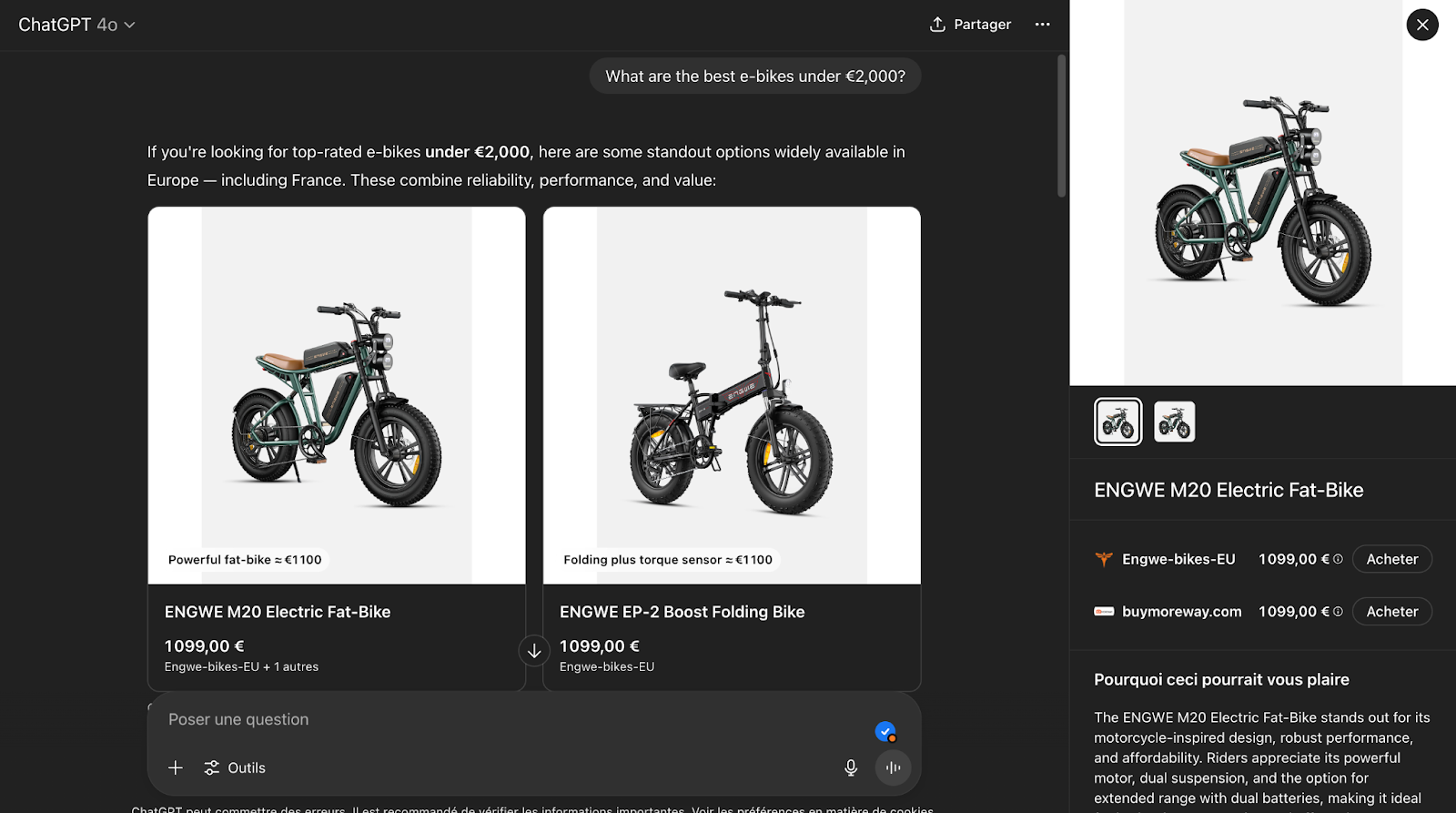Contextual links : Still useful in the age of GEO ?
Contextual links : Still useful in the age of GEO ?
Maxence Debroux
February 5, 2026
.

6 out of 10 consumers have already replaced traditional search engines with generative AI.”— Capgemini, February 2025
Instead of browsing through search results, they ask direct questions, get curated answers, and often bypass traditional search engines entirely.
Faster answers. Faster purchases.
According to Gartner, this shift will drive a 25% drop in traditional search volume by 2026 — and a sharp decline in organic traffic.
And trust follows usage: 76% of consumers say they trust AI-generated recommendations, according to Salesforce.
This shift marks the rise of Generative Engine Optimization (GEO) — a new approach to search visibility that focuses on being quoted, not just ranked.
For e-commerce brands, this is more than a trend. It’s a competitive battleground.
What you’ll learn in this article:
When users ask “What’s the best air purifier for allergies?” — they don’t want 10 links.
They want one clear, confident answer.

And AI assistants like ChatGPT, Gemini, or Perplexity deliver it.
Incomplete or biased? Maybe.
But buyers save time — and they may value that more than exhaustiveness.
This shift is massive:
AI simplifies decisions → and reduces your window of influence.
For e-commerce brands, this means:

You still need SEO — but it’s no longer sufficient.
To succeed in 2025, e-commerce teams must combine SEO + GEO efforts.
Traditional SEO → GEO (Generative Engine Optimization)
Rank your pages → Optimize your content for quotes
Optimize for keywords → Optimize for context & trust
Focus on clicks → Focus on credibility
Measures traffic → Measures citations in AI answers
With GEO, it’s not about being found.
It’s about being named.
Ask ChatGPT: “What are the best e-bikes under €2,000?”
It won’t give a list — it gives 2–3 product names and you're 1-click away from the e-commerce store to complete your order.
If you’re not one of them, you’re invisible.

To succeed, you need to optimize for how AI thinks:
“Being the cited expert is the new equivalent of ranking #1.” — Céline Naveau, CEO at Semactic
AI search is not a threat. It’s a shortcut — and a massive opportunity.
E-commerce brands who adapt now will:
It’s time to optimize not just for Google’s crawlers — but for the LLMs that talk to your customers.
Let your brand be the one that AI assistants trust and recommend.
Want to know if your brand shows up in AI search?
Run a free ChatGPT visibility check:👉 https://chatgpt-checkup.semactic.com
Generative Engine Optimization (GEO) is the process of making your content visible in AI-powered search engines like ChatGPT, Gemini, or Perplexity. Instead of focusing only on rankings, GEO ensures your brand is cited in AI-generated answers. For e-commerce, this means showing up directly in product recommendations, comparisons, and buying guides — exactly where purchase decisions happen.
SEO optimizes content to rank in Google’s list of links. GEO optimizes content to be quoted in AI-generated answers. While SEO focuses on keywords, metadata, and backlinks, GEO emphasizes structured content, authority signals, and cite-worthy information. For online retailers, this shift means preparing content that AI can summarize and trust — not just index.
E-commerce brands can: Structure pages with clear summaries, Q&As, and comparison tables. Add schema markup for pricing, reviews, and availability. Publish trustworthy content with sources, expert quotes, and data. Encourage reviews and mentions across external platforms. Monitor if their brand is cited in AI answers and adjust content accordingly.
Yes. AI assistants give direct, trusted answers that shorten the buying journey. Research shows that users often decide faster when recommendations come from AI engines. By being cited as a reliable source, e-commerce brands build immediate trust and guide users toward purchase — often reducing the time from search to sale compared to traditional SEO.